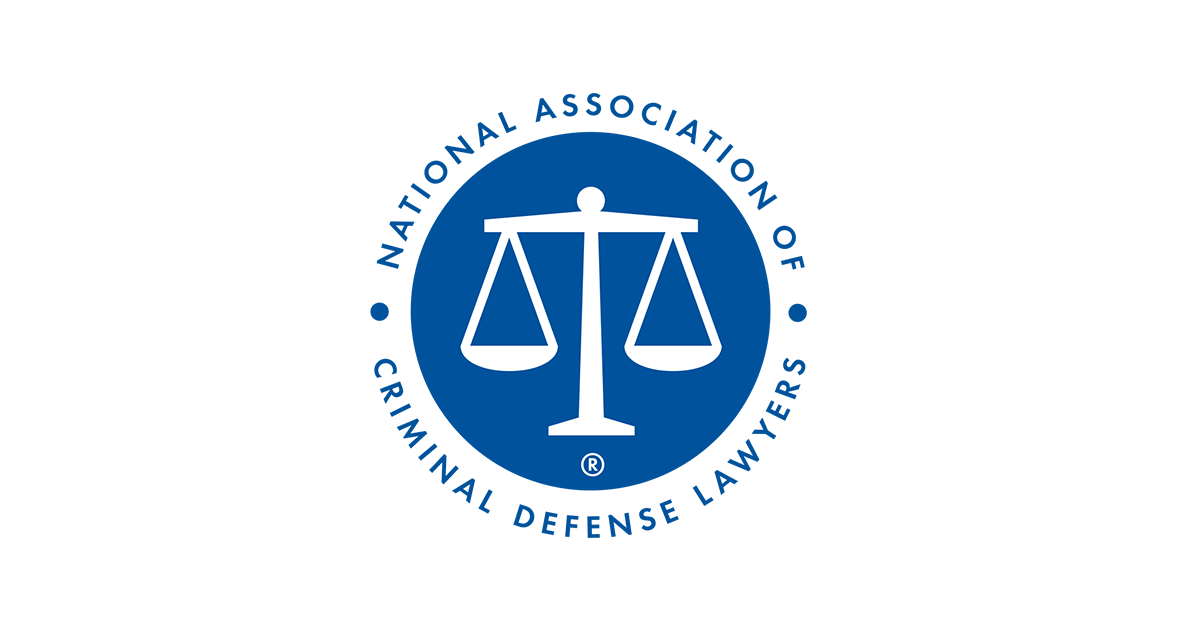Compassionate Release Motions and Decisions by Jurisdiction
Filter Results
Showing 1021 - 1035 of 1185 results
-
- Brief
United States v. Estrada-Elias, 2021 WL5505499, No. 21-5680 (6th Cir. Nov. 24, 2021)
Case started out as an excessive sentence case (the two §851s that created life mandatory mininum wouldn't apply today), but due to bad case law in Sixth Cicuit, attorney Chloe Smith smartly pivoted to more traditional/COVID arguments. After Judge Danny Reeves in the EDKY denied the motion, Chloe appealed the denial of the CR motion to the Sixth Circuit.
The Sixth Circuit reversed and remanded the district court’s denial of compassionate release to a 90-year-old, terminally ill, bedridden defendant serving mandatory life for non-violent marijuana offense that would only be subject to a 10-year mandatory minimum today. In reversing, the Sixth Circuit found that the “district court’s analysis of the 18 U.S.C § 3553(a) factors leaves us “ ‘with a definite and firm conviction that the district court committed a clear error of judgment.’ ”
By overly emphasizing Estrada-Elias’s history of nonviolent crimes, ignoring the low likelihood that Estrada-Elias will re-offend, and mischaracterizing the reality of the gap between Estrada-Elias’s present and prior convictions, the district court engaged in a substantively unreasonable balancing of the § 3553(a) factors and therefore abused its discretion.
The court reversed and remanded for Judge Reeves to make a finding on extraordinary and compelling reasons prong, which it has assumed applied without actually holding as such.
Order (6th. Nov. 24, 2021)
-
- Brief
United States v. Patel, 2:11CR20468 (E.D. Mich. Nov. 22, 2021)
Mr. Patel had been released on CARES Act Home Confinement for 17 months. Hi CR motion argued ECR existed because client will be sent back to prison, not for violating the rules of release or for committing a new crime, but because he is four months shy of qualifying for expedited clemency under the Biden clemency program. Government countered that there was no current threat of Mr. Patel being returned to prison and cited to a Law 360 article that misrepresented AG Garland's November 2, 2021 testimony before Congress. Mr. Patel countered the incorrect information in his reply. The court, however, denied relief, finding that the "argument is premature and the issue is not ripe for review."
Order (Nov. 22, 2021)
Reply (Nov. 25, 2021)
Gov. Response (Oct. 29, 2021)
Supplemental CR Motion (Oct. 8, 2021)
-
- Brief
United States v. Gregory, 07CR73-JED (N.D. Okla. Nov. 22, 2021)
Mr. Gregory was sentenced to a mandatory 32 years on two stacked 924(c)s convictions stemming from the robberies of two Oklahoma pharmacies. NACDL pro bono attorneys filed a compassionate release motion on Mr. Gregory’s behalf arguing that a reduced sentence is appropriate because, if sentenced today, Mr. Gregory’s mandatory minimum would be only 14 years. Only two after the motion was filed, the district court reduced Mr. Gregory’s sentence to time-served, finding extraordinary and compelling reasons due to his conviction at a relatively young age (26), the disparity between his sentence and those sentenced for similar crimes after the FSA, his rehabilitation efforts, and the environment he would enter upon release. The court also noted that Mr. Gregory was a victim of drug addiction, which motivated the robberies: “While the Court obviously does not excuse what he did, there is no doubt that Mr. Gregory, like so many others in this country, was, at least in part, a victim of his addiction to opioid pain killers. This addiction was the main force that drove him to rob two pharmacies at gunpoint.” Due to the work of his pro bono attorneys, Mr. Gregory was able to spend his first Thanksgiving in 15 years at home with his family.
Order (Nov. 22, 2021)
Motion (Nov. 8, 2021)
-
- Brief
United States v. Richardson, 2:06CR10 (W.D.N.C. Oct. 29, 2021).
At the age of 25, Mr. Richardson and others committed several bank robberies. Mr. Richardson was convicted of two bank robbery offenses and two § 924(c) offenses resulting in a combined sentence of 405 months, or almost 34 years prison. Due to the First Step Acts changes in the § 924(c) stacking provision, were he sentenced today, Mr. Richardson would likely receive only a 189-month sentence. In its Order, the Court noted that Mr. Richardson had served more than 210 months in prison, where he had successfully completed numerous education programs and work assignments. The court also relied on Mr. Richardson’s lack of a serious criminal history, relative youth at the time of his offenses, his release plan to a stable home, and the 18-year disparity between the § 924(c) sentence he originally received and the sentence he would receive today. The court then reduced Mr. Richardson’s sentence from 405 months to time-served plus 14 days. Instead of a release date of 2035, Mr. Richardson will soon be home with his family.
Motion (June 23, 2021)
Goverment Response (Aug. 12, 2021)
Reply (Aug. 27, 2021)
Notice of Supplemental Authority (Oct. 14, 2021)
Order Granting Release (Oct. 29, 2021)
-
- Brief
United States v. Jarvis, 999 F.3d 442 (6th Cir. 2021)
Jarvis panel announces that despiteprevious contrary ruling in Owens, district courts cannot consider non-retroactive changes in the law, “whether by themselves or together with other factors, as “extraordinary and compelling” explanations for a sentencing reduction,” citing Tomes. The opinion tries to dance around Owens, noting that “district courts may consider the non-retroactive First Step Act amendments in applying the § 3553(a) factors once an inmate has met the threshold requirements for relief under the compassionate release statute.” Judge Clay issues a vigorous dissent. Doug Berman has more here.
-
- Brief
United States v. Gonzalez, 1:16CR162 (D. N.H. Aug. 31, 2021)
Defendant was subjected to 20-year man min based on 851 enhancement late in case--a year after indictment-- pursuant to pursuant to then-AG Sessions’ new charging policy; “[w]hen Gonzalez’s sentence is compared to the sentences received by his co-conspirators, it is apparent that he received a disproportionately harsh sentence.” CR motion granted, with the court opting to hold a new sentencing hearing.
Order (Aug. 31, 2021)
Motion (Feb. 26, 2021)
-
- Brief
United States v. Rucker, No. 04-20150-JWL, 2021 WL 4061615, at *1 (D. Kan. Sept. 7, 2021)
Reducing sentence for defendant with a 2041 release date to time-served for a combination of reasons: a newly diagnosed serious cardiac condition with poor stats for 5-year survival, 924(c) unstacking, recent cooperation, and COVID risk. Also a post-vaccination COVID grant (although the vaccination status is only mentioned in the motions). Notably, this case is a lesson in persistence. The counsel or record filed, lost, appealed, won post-Maumau, got an expert, re-filed in the district court, briefed it all some more, and voila—the client is home)
Order (Sept. 7, 2021)
-
- Brief
United States v Chandler, 5:99-cr-40044-HLT (D. Kan Aug. 27, 2021)
(joint agreement with government, notable because the sentencing change in this case was the removal of the recency criminal-history point from the guidelines, which had moved defendant up a criminal history category; also includes a section 404/crack retro argument because he was eligible, and argued the GL change there too. He had also served a long time and had good equities, and that guideline hook was enough to get some traction. Second look: not just for statutory changes.”
Motion (Aug. 26, 2021)
Order (Aug. 27, 2021)
-
- Brief
Family Circumstances CR Grants
United States v. Brim, 8:93CR98 (C.D. Cal. Feb. 26, 2021) (cr granted for client previously sentenced to life, based on the client’s need to act as caretaker for his ailing mother, sentencing disparities between codefendants, his rehabilitation, and his great release plan).
Motion (November 25, 2020)
Order (Feb. 26, 2021)
United States v. Thompson, 2021 WL 2418573, 3:17CR170-CHB (W.D. Kentucky June 14, 2021) (granting compassionate release solely “on the unique family circumstances presented in this case.” Ms. Thompson has lived through a series of family tragedies while incarcerated: “her husband, Lowell Washington, died tragically, and she submitted correspondence from her children regarding their struggles after losing both a sibling and step-father while their mother is incarcerated.” On top of that, her mother, who was caring for her children, became very sick. CR granted. (Bonus cite at the end to other family circumstances grants.)
Order (June 14, 2021)
United States v. McCauley, No. 07CR4009-SRB (W.D. Mo. June 23, 2021) (Grant based on family circumstances; initial motion focused on changing societal attitudes about marijuana, but the attorney pivoted and added a family circumstances argument in the reply brief, which turned out to be the winning issue. A great lesson on the importance of kitchen sinking our arguments in second look/excessive sentence cases---throw it all in)
Motion (addressing changing attitudes about marijuana) (Apr., 23, 2021)
Response (May 21, 2021)
Reply (June 3, 2021)
Order (June 23, 2021)
United States v. Cruz, ECF No. 3:94-CR-112-JCH 2021 WL 1326851 (D. Conn., Apr. 9, 2021) (18-year-old originally sentenced to LWOP for double murder; sentence previously reduced to 35 years in light of Miller; had served 31 years; court reduced sentence to time served citing as ECR the age at the time of his crimes, the length of his sentence, his extraordinary rehabilitation, the COVID-19 pandemic (BMI 27 and hypertension), and his family circumstances (sick mother).
Order (Apr. 9, 2021)
United States v. Whitt, 4:18CR786-AGF (E.D. Mo. July 13, 2021) (granting compassionte release on family circumstances grounds because Whitt is needed to care for hsi three children following the death fo the children's mother on June 29, 2021).
Order (July 13, 2021)
-
- Brief
United States v. Busby, 3:16CR211 (N.D. Tex Apr. 20, 2021)
Early Home Confinement Compassionate Release grant. Court held: "After considering all the information surrounding Defendant’s Chronic Lymphocytic Leukemia, his advanced age (68) and unique circumstances, and the elevated risk caused by the COVID-19 Pandemic, should the BOP end his home-confinement designation and reincarcerate him, the court finds that Defendant has shown extraordinary and compelling circumstances."
Order (Apr. 20, 2021)
-
- Brief
United States v. Reyes, 1:09CR239 (M.D.N.C. Dec. 11, 2020)
District court agrees that defendant’s home confinement conditions affect her need for access to medical care, noting that her doctor's appointments have to be pre-authorized by her RRC case manager and needed repeated removal of her GPS monitor to undergo diagnostic and surgical care; sentence reduced to time-served.
Defendant's Unopposed Motion to Reduce Sentence (Dec. 8, 2020)
Order granting compassionate release (Dec. 11, 2020)
-
- Brief
United States v. Calhoun, 3:08CR77-DPJ (S.D. Miss.)
2021 Home Confinement grant. Defendat argued in motion that hc does not resolve the cr motion because, after the pandmic ends, "Mr. Calhoun may be returned to a BOP correctional facility to complete his sentence—regardless of how faithfully he has followed every rule imposed and regardless of how well he has resettled into the community." The Court granted the motion, noting that Calhoun, who is on CARES Act HC, could be returned to prison." While Calhoun's medical issues "alone" might not be enough to grant relief, "in this case the BOP released Calhoun to home confinement over a year ago and he has had no infractions" "These are unusual times and circumstances, and the Government has not pointed to any further penological goals that are served by requiring Calhoun to remain on home confinement for six additional months to satisfy the technical requirements of a non-binding policy statement."
Supplement to Motion for Compassionate Release (Mar. 18, 2021) (arguing that
Order Granting Compassionate Release (May 14, 2021) (n














